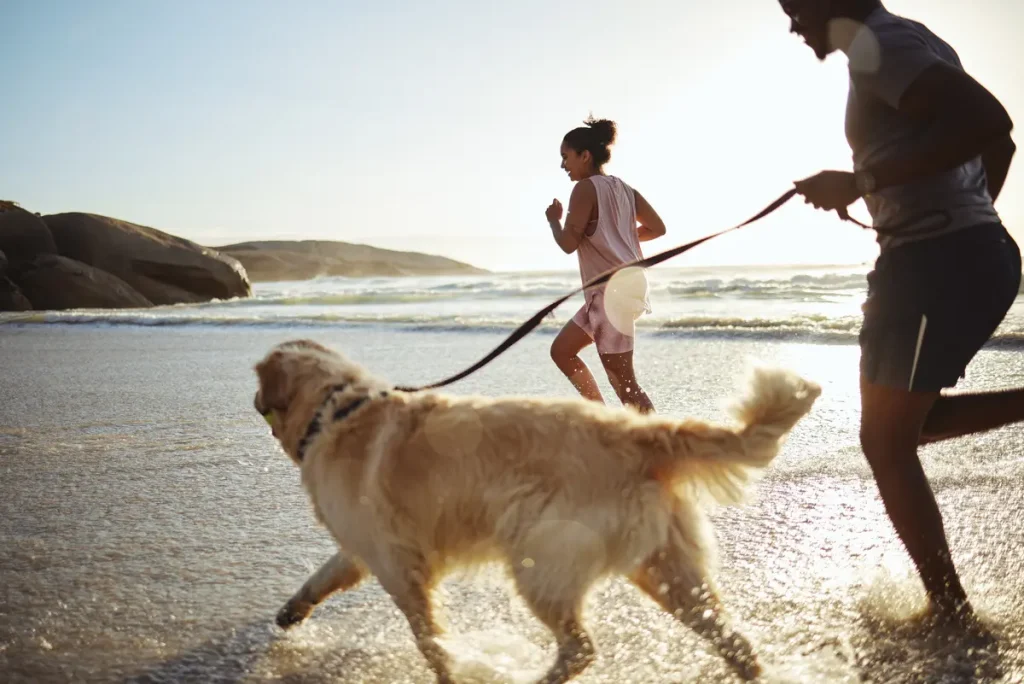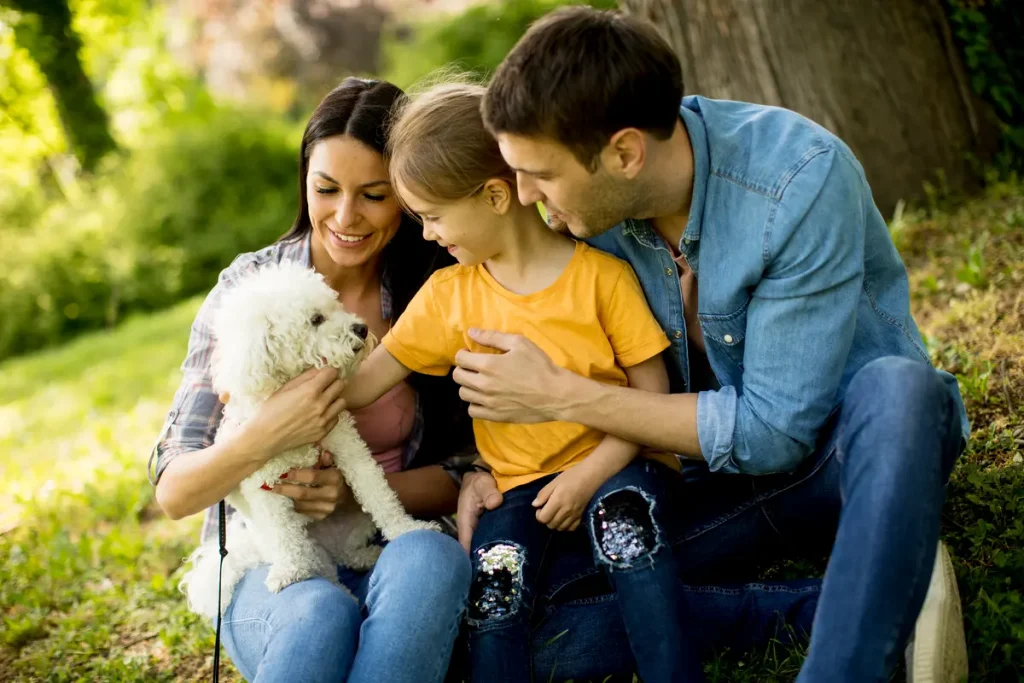Are you considering getting a furry friend? While the idea of having a canine companion can be exciting, it’s important to remember that owning a dog is a long-term commitment that requires responsible care and attention. Getting a dog involves much more than just giving them food and love. It includes providing them with adequate care and medical attention, as well as daily exercise and socialization.
If you’re thinking about bringing a new pet into your life, we’ve compiled a pre-dog checklist of 7 key things you should know before getting a dog to help you prepare and see if you’re really up for the task.
Getting a Dog 101: The Importance of Thinking Things Through
Bringing a dog home is like welcoming a new family member. It’s an exhilarating journey filled with wagging tails, warm cuddles, and the joy of companionship. But it’s also a commitment that requires careful thought and preparation. It’s not just about how cute they look or how much your kids have been begging for a pet. It’s about understanding that dogs need time, attention, and care.
They need proper discipline and a safe environment free from hazards. It’s about acknowledging that dogs are a lifetime commitment, and their needs will change as they age. It’s about doing your research, knowing the breed, considering the costs, and, most importantly, assessing if your lifestyle can accommodate this new addition.
So, before you bring that bundle of joy home, take a moment to think things through. Because when you get a dog, you’re not just getting a pet; you’re getting a friend for life. And that’s a decision worth deliberating on.
Ruff Decisions Ahead: 7 Things To Keep in Mind Before Getting a Dog

Before diving into the whole “getting a dog” thing, it’s crucial to evaluate if owning one is really for you. While adorable mixed-breed puppies may seem tempting, it’s essential to remember that a curious puppy can grow up to be a destructive adult animal if not properly trained and provided with adequate care.
Furthermore, owning a dog comes with responsibilities beyond daily care. It includes vet bills, emergency care, and even the social life of the furry friend for it to be a happy and confident animal. This checklist will guide you through the playground of dog ownership, pointing out essential things you should consider before taking the big step, emphasizing the importance of being prepared for the commitment and responsibility it entails.
Owning a dog isn’t just about the joy they bring into your life; it’s about ensuring their well-being, happiness, and health throughout their lifetime. So, give them a thought!
1. Research
The choice of companion animal should be based on diligent research of different breeds and their characteristics. This will help you determine if a breed’s activity level and energy level match your lifestyle. Researching animal shelters is also an excellent way to find an animal that suits you. Every year, millions of dogs end up in shelters, often through no fault of their own.
These dogs come from various backgrounds – some are strays, some are surrendered due to changes in their owners’ lives, and others are rescued from neglect or abuse. Choosing to adopt from a shelter or rescue organization not only provides a second chance for these animals but also offers numerous advantages over buying from a breeder.
Adopted dogs often come already spayed or neutered and vaccinated, saving you initial costs and contributing to responsible pet ownership. Additionally, many shelters conduct behavioral assessments on their animals, providing valuable insights into the dog’s personality, temperament, and compatibility with your lifestyle. This information helps ensure a better match between you and your new furry friend.
If you’re still planning on buying one, it’s crucial to research reputable breeders and avoid puppy mills. Responsible breeders breed dogs to uphold specific breed standards and are an excellent source for healthy, well-socialized puppies. Puppy mills, on the other hand, prioritize quantity over quality, putting the health and well-being of the puppies at risk.
2. Training
To avoid destructive puppy behavior, early training and socialization are essential from an early age. Puppy training classes are a great way to provide your new furry friend with structure and consistency in their learning. These classes will help teach your puppy basic commands and potty training, which is crucial for them to develop healthy habits and avoid accidents.
Socializing your puppy with other canine friends is also essential for their development. Being familiar with other dogs helps them become well-adjusted dogs, reducing the chances of behavioral problems in the future.
3. Exercise

Dogs are more than just cute animals – they require daily exercise, which varies depending on the breed and energy level. Therefore, choosing a breed that’s compatible with your lifestyle is crucial in providing your furry friend with the exercise they need. Your lifestyle should include a daily exercise routine such as walking, jogging, or playing fetch. Daily exercise can prevent obesity and improve the quality of life of your new pet.
Additionally, maintaining your dog’s environment – keeping their living area clean and providing adequate exercise, mental stimulation, and companionship –is vital for their overall well-being.
4. Medical Issues
Like humans, dogs can also develop medical issues. It’s essential to provide your furry friend with regular veterinary care to maintain their health. Veterinary care includes preventative measures such as vaccines and tick and flea prevention, as well as regular routine check-ups to detect any medical issues early on. It’s important to budget for vet bills as well as emergency care to ensure your dog receives the care it needs in case of an unexpected illness or injury.
5. Long-Term Commitment
Owning a dog is a long-term commitment that requires attention and dedication. Dogs can live up to 15 years or more, depending on the breed’s average lifespan. Considering your lifestyle and how a dog could fit into it is crucial as it involves planning for their future as well. Dogs, like humans, require love and care even as they age, and being a responsible pet owner means being there for them every step of the way.
6. Proper Nutrition
Proper nutrition is vital for a dog’s well-being, impacting their health and longevity. High-quality dog food formulated for their breed, size, age, and health requirements is essential. But let’s not forget about the importance of incorporating healthy dog treats into their diet! These little rewards can be a useful tool for training and a source of joy for your furry friend.
At Little Chef, you can find 100% natural, functional dog treats that not only delight your dog but also contribute to their health. Made from high-quality, natural ingredients, these treats are designed to provide essential nutrients that support various aspects of your dog’s health, from their skin and coat to their digestive system.
It’s crucial to budget for these recurring costs and ensure that you can afford to provide your furry companion with the necessary nutrition they deserve, which includes both their regular meals and some treats from time to time.
7. Grooming and Maintenance
Grooming is not merely about making your dog look good; it’s also about maintaining their overall health. Different breeds have varying grooming needs, ranging from regular brushing to prevent matting and skin issues to professional grooming sessions for haircuts, nail trimming, and ear cleaning. Neglecting grooming can lead to discomfort and health problems for your pet, so keep this in mind before getting a dog.
Paws for a Moment: Getting a Dog is a Joyful, Long-Term Commitment

As the curtain falls on this insightful journey into the realm of dog ownership, one thing remains crystal clear: the decision to welcome a dog into your life is not merely about adding a furry companion – it’s a commitment brimming with love, responsibility, and countless cherished moments.
Being a responsible pet owner involves being there for your dog every step of the way throughout their long and happy life. So, before getting a dog, research different breeds and their characteristics. Choose a breed that’s compatible with your lifestyle in terms of exercise, activity level, and energy level, and consider everything we’ve talked about.
Remember, behind those soulful eyes and wagging tail lies a promise of unwavering loyalty and boundless affection – a promise that, when reciprocated, has the power to change your world in ways you could never imagine.
FAQ
Anything else on your mind before getting a dog?
Does a Dog Change Your Life?
Absolutely! A dog brings unconditional love, laughter, and companionship into your life. They also teach you about responsibility, patience, and the true meaning of loyalty.
Does a Puppy Choose Its Owner?
In a way, yes. Puppies often feel a special bond with the person who provides them with care, love, and security. It’s like they have a sixth sense for who their “person” is!
What to Avoid When Choosing a Puppy?
Avoid choosing a puppy solely based on looks or breed popularity. It’s crucial to consider the puppy’s temperament, health, and how well it fits with your lifestyle and home.
What Is the Hardest Part of Having a Puppy?
The hardest part is the initial training and adjustment period. There will be sleepless nights, potty accidents, and teething challenges. But remember, it’s all a part of the journey to having a well-behaved adult dog, a best friend, and a loyal companion.
Where Should Puppy Sleep First Night?
The puppy should sleep in a comfortable and secure area, preferably in a crate near your bedroom. This helps them feel safe and makes it easier for you to hear if they need anything during the night.
What to Do If Puppy Cries First Night?
If your puppy cries, try soothing them with soft words or a gentle touch. However, avoid immediately picking them up, as this can lead to a habit. They’re adjusting to a new environment, and it’s okay for them to take some time, but make sure you’re there for them – it’s stressful, and they should feel secure.

